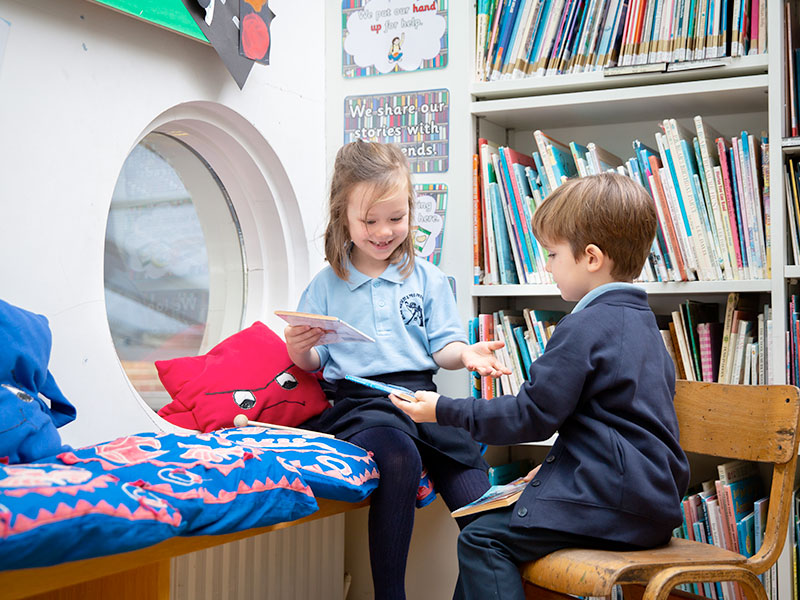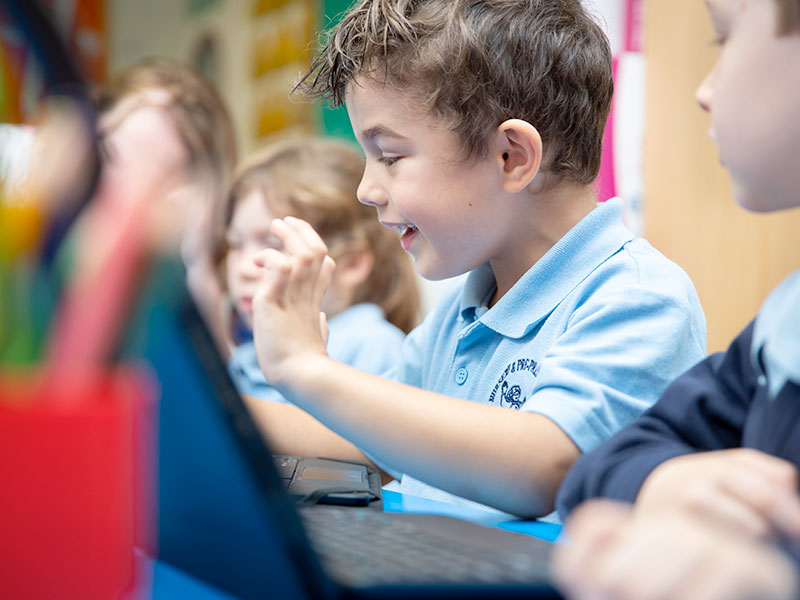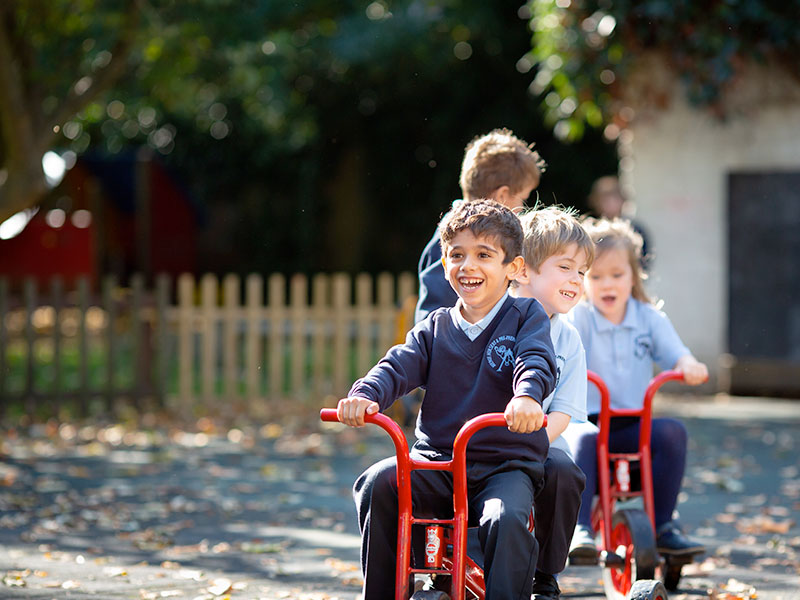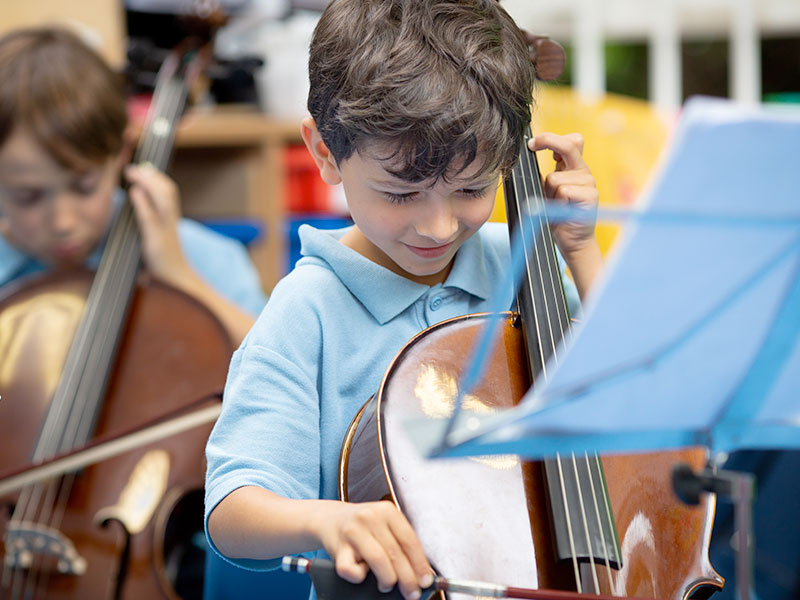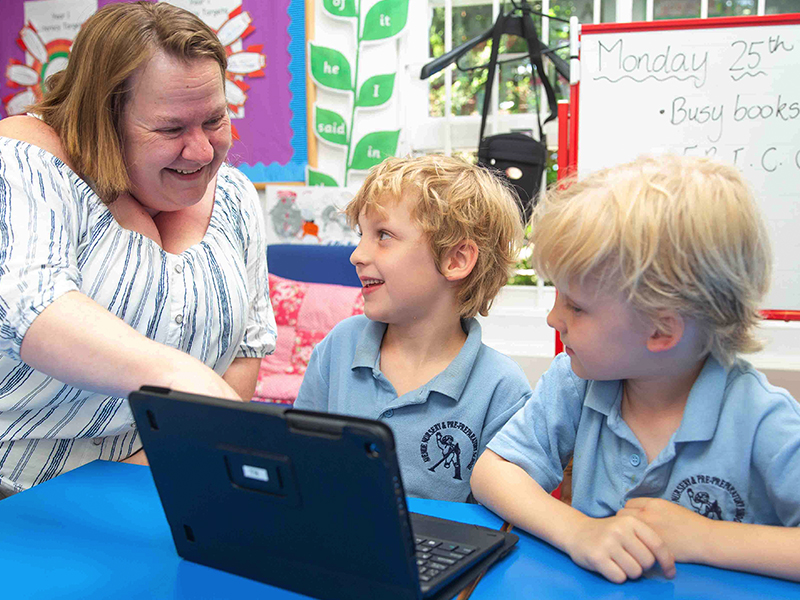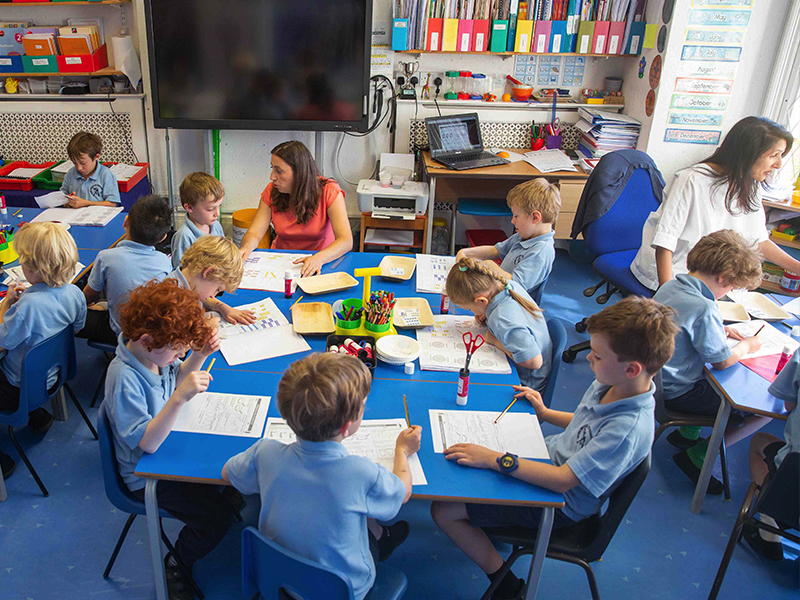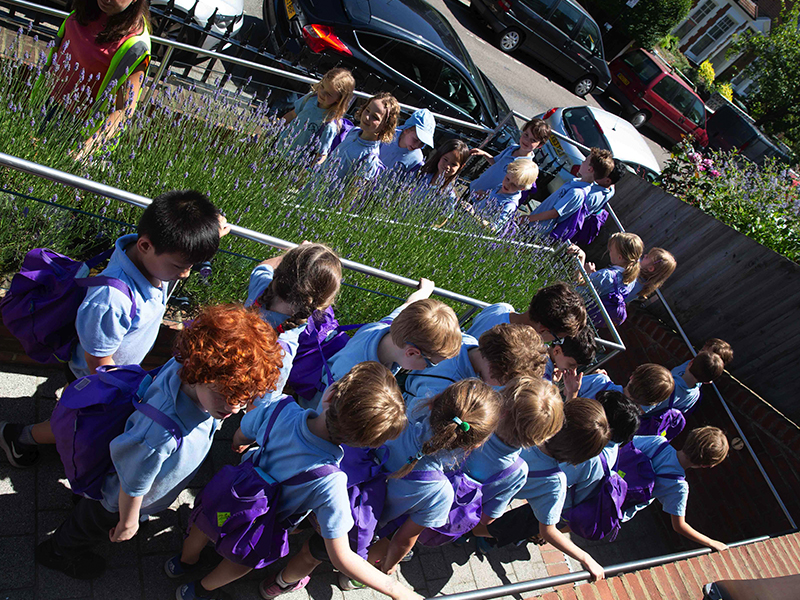Year 1
8:30 to 3:30 pm Monday to Friday
except Thursday when they all finish at 4pm
Curriculum
The Curriculum is broadened and extended in Year 1 to include Geography, History, RE and Science. Great emphasis is placed upon developing reading, writing and arithmetical skills in order prepare fully for the Assessments to various schools in Year 2.
These core subjects are taught by Class Teachers, supported by Classroom Assistants with other members of our QTS staff teaching Science, Geography, History, RE and PSHE.
In addition to participating in role play and drama, children continue to develop their listening and speaking skills and gain the confidence to ask and respond to questions through Show and Tell sessions and through class discussion.
In Year 1, building confidence in reading continues by developing skills individually, in a group and as a class. The children read regularly on a one to one basis and start weekly guided reading sessions. All children are expected to read at home and their progress is recorded daily in their reading diaries.
The scheme used for the teaching of Phonics is Jolly Grammar and our main reading scheme for KS1 is predominantly The Oxford Reading Tree (ORT). At the end of each ORT stage we supplement with a variety of books from other schemes to expand the children's experience of reading a variety of different fonts, styles and genres. Proficient readers become 'free readers' and are allowed to choose books from our well stocked Library.
Children explore simple punctuation and sentence construction, develop spelling strategies and plan written work. They are also encouraged to record personal experiences and write simple stories as well as poetry.
The children study Maths in a practical, hands-on way in order to relate their learning to real-life situations. They work individually, as a whole class and in groups. The children use a range of equipment and resources to help develop and deepen their mathematical understanding.
In KS1, Maths is divided into six main topics, each of them being covered termly. These are: Numbers and place-value, Calculations, Fractions, Measurement, Geometry and Statistics.
This year, pupils develop an awareness of the past and begin to fit events into a chronological framework. Changes within living history are explored through the topic of toys, while events beyond living memory are addressed through topics such as the history of transport and Remembrance Sunday.
The children initially focus on the United Kingdom and its countries as represented in photographs, books and stories. They begin to consider oceans of the world and learn about the fauna in the North and South Poles. The children are introduced to places that contrast with the UK when they study the conditions in the North and South Poles. They study small areas of the UK in more detail when studying local weather and comparing urban and rural locations. The children develop their geographical vocabulary through learning about the physical features of contrasting places. They develop their geographical skills by using maps, atlases and globes, compasses and aerial photographs and plan perspectives. They are taught to interpret simple maps and keys.
During this year the areas studied include the animal world, plants, materials and the weather. The children begin to learn to work scientifically, conduct their own investigations to produce meaningful outcomes.
In Year 1, the children commence with the learning of either the violin or the cello, chosen the term before in Reception. The Year 1 children enjoy individual lessons in addition to playing together in small groups.
These lessons are included in the fee and are timetabled like any other subject in the Curriculum and every child participates .
In their musicianship classes, the children learn to use percussion instruments, both tuned and untuned. They discover the difference between pulse and rhythm using their singing voices, body percussion and classroom percussion instruments. There is a focus on developing the thinking voice (inner ear) and promoting aural memory through singing. The children learn how to stand and breathe properly when singing and understand how this improves the vocal quality. The children also develop an understanding of the music concepts - pitch, dynamics, timbre and tempo and structure in music. They are taught many songs which enhance and develop their aural memories.
In circle times sessions the children discuss together and explore, for example, the importance and reasons for rules, taking responsibilities and cooperating with others. They are encouraged to understand and embrace their individual identities, how they grow and change and how to make healthy life-style choices. In addition, they learn how to live together and make friendships work by embracing individuality and celebrating differences.
In year 1, the children are introduced to different religious celebrations and practices from the six main world religions and some smaller faith groups. The children are encouraged to join in discussions and share any experiences that they may have.
The children develop their word processing skills. They also learn about PowerPoints, producing a simple presentation. They begin coding using a variety of tools and equipment.
To extend the childrens’ cultural and linguistic skills, every week French is taught by our French Teacher. During these lively sessions the children take part in playing games, singing a wide repertoire of French songs and participate in role play and other practical activities.
We also offer a variety of specialist subjects to further encourage the pupilss education including; art, dance, drama, swimming, gardening and after school clubs. To learn more about each of these options please visit our school life section.
Our work is very much in partnership with parents. We aim to build positive and proactive relationships with families to ensure the best outcomes for your child. We use a dedicated, secure portal to share updates and photographs from your child’s week and operate a consistent ‘open door’ policy so that any concerns you may have relating to your child and the School are dealt with efficiently and effectively.

